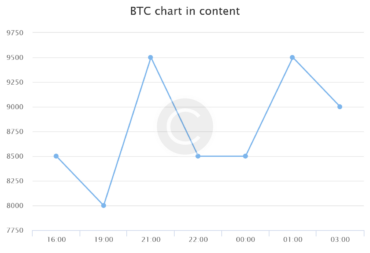In the ever-changing landscape of blockchain technology, Decentralized Autonomous Organizations have emerged as a force to be reckoned with, changing how organizations are governed and decisions are made. It is a paradigm shift from a traditional, centralized organizational structure to that of a decentralized, community-centric model where participants can self-govern and manage resources without intermediaries or a central authority.
Future governance and decision-making will be executed through DAOs, where levels of transparency, inclusivity, and autonomy are taken to unprecedented new dimensions in correlation with the maturing blockchain networks.
Basically, a DAO is an organization for which the rules and mechanisms of governance are coded as smart contracts to assist in managing the organization by its members or a collective set of rules and protocols that outline procedures within this organization.
Smart contracts are self-executing agreements on a blockchain. The latter outlines the logic of how an organization works, including its governance mechanisms and how resources are allocated. Thus, in a DAO, decisions are transparent and auditable on a tamper-proof ledger thanks to blockchain.
One of the key features of DAOs includes the process of governance, whereby participants themselves are directly empowered to make decisions concerning the directions of an organization. Traditional organizations concentrate power in selected hands or entities that control and drive the entity forward.
In DAOs, on the other hand, the authority of governance is distributed among its members, fostering a more inclusive and participatory element. It provides its members with the facility for decentralized voting mechanisms through which one can propose, debate, and vote on proposals, ranging from resource allocations and budgeting to strategic initiatives or even protocol upgrades.
Also, DAOs can be autonomous in operation: organized entities may independently perform certain actions and functions. By applying smart contracts, a DAO will be able to automate processes like funding management and profit distribution, or carrying out decisions, with minimal human judgment or administrative burden.
This would enhance not only the level of operational effectiveness but also reduce the potential of human error and bias, always ensuring fair and objective results.
The possible usages of DAOs are very diverse and span industries and use cases. In the domain of DeFi, DAOs constitute the backbone for governance in various decentralized protocols, like DEXs, lending protocols, and liquidity pools.
They let users manage the funds together, set parameters of the protocol, and vote on proposals related to the governance. This opens access to financial services and brings new forms of decentralized governance into the DeFi ecosystem.
Similarly, various other areas like gaming, content creation, and social networks can be disrupted by DAOs. Gaming, for example, could have DAOs enable players to administer virtual worlds, control in-game economies, and make decisions for developing and updating new features of games.
This can allow creators of content to collaborate, monetize it, and operate platforms sans intermediaries. This means that in social networks, this is where DAOs are applied to enable community-driven governance, content moderation, and revenue-sharing models that give users more ownership of their digital identity and online interactions.
Of course, not all the kinks have been fully ironed out on the road that leads to the generalized adoption of DAOs. The most important ones among these concern regulatory uncertainty, scalability limits, and challenges in governance. Clear regulations could ensure better observance of the existing legal frameworks and reduce the incidence of regulatory backlash.
The answers to scalability will be necessary to keep up with the number of transactions and participants across blockchain networks, thus allowing DAOs to scale efficiently. Not less important, governance mechanisms must evolve to handle the issues of voter apathy, plutocracy, and sybil attacks if these aspirations of resilience and inclusivity are to stay valid with respect to DAOs.
Decentralized Autonomous Organizations are one paradigm shift in both governance and decision-making, offering a totally new model for arranging human activities in ways that are decentralized and trustless. As blockchain technology continued to mature and evolve, the place of the DAOs would be at the cornerstone for decentralized governance, allowing the communities to self-govern, allocate resources, and make collective decisions without any sort of dependence on a centralized authority.
As we embark on this future of decentralization, potentialities will be endless, and the positive impact could be massive. DAOs are but the future of governance and the future of humankind in collaboration and collective action on a global scale.




